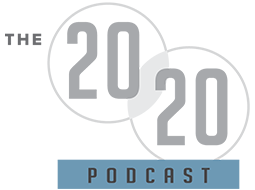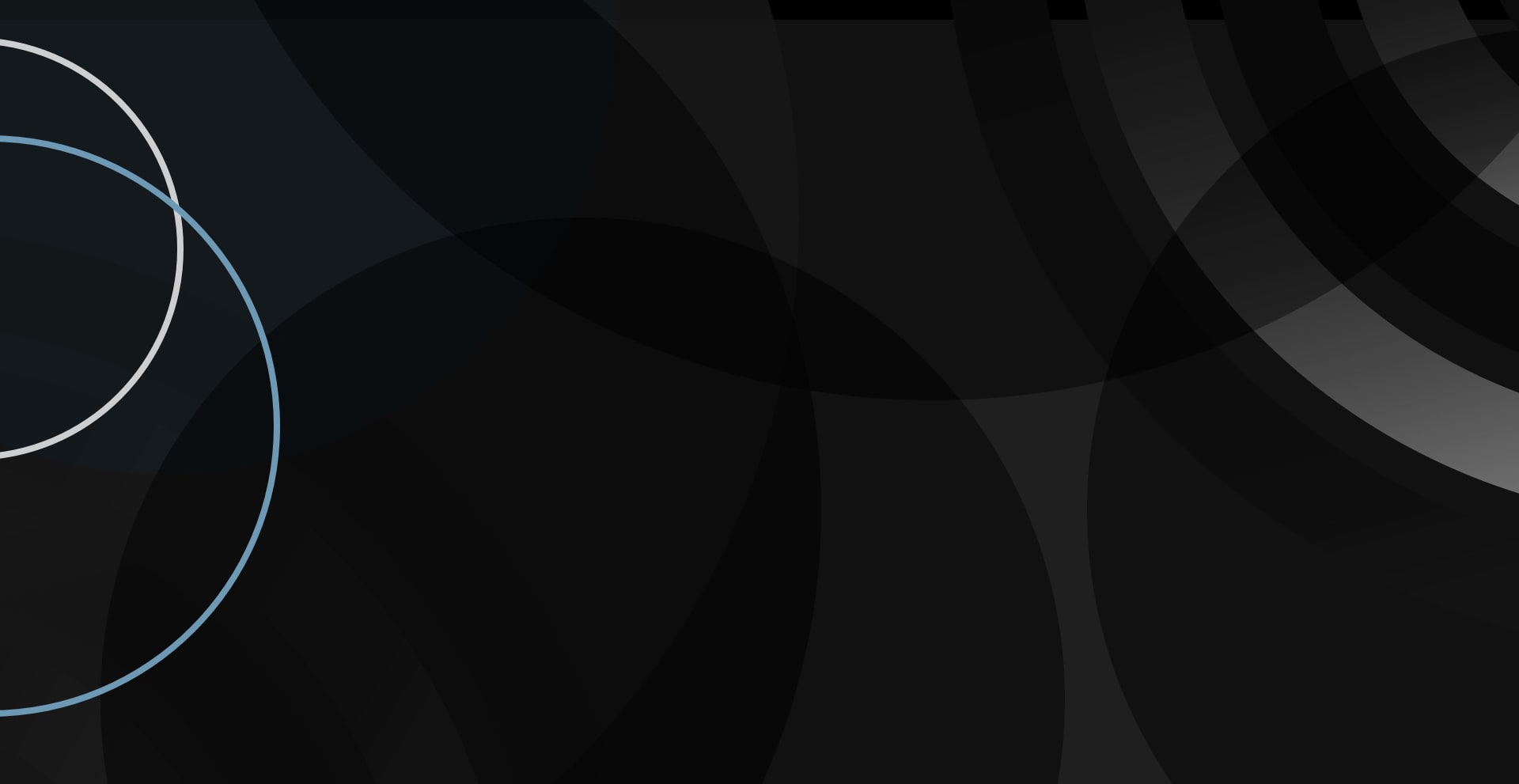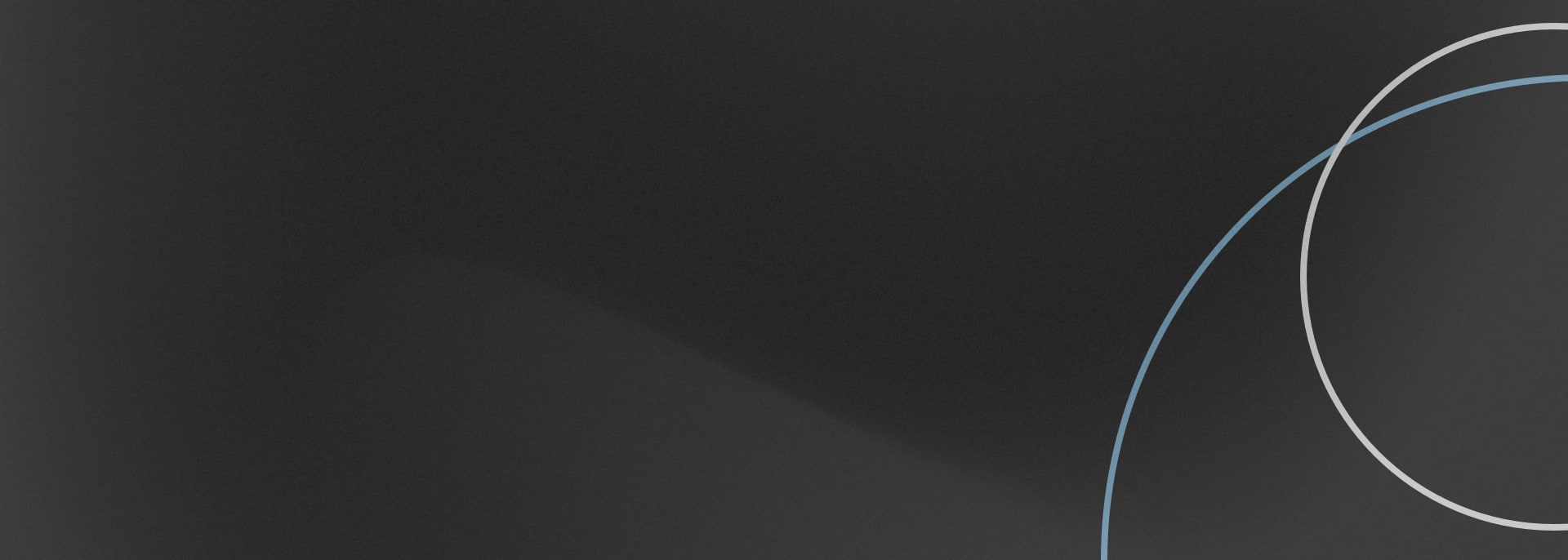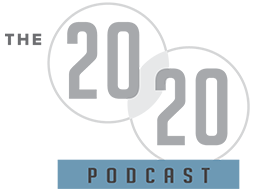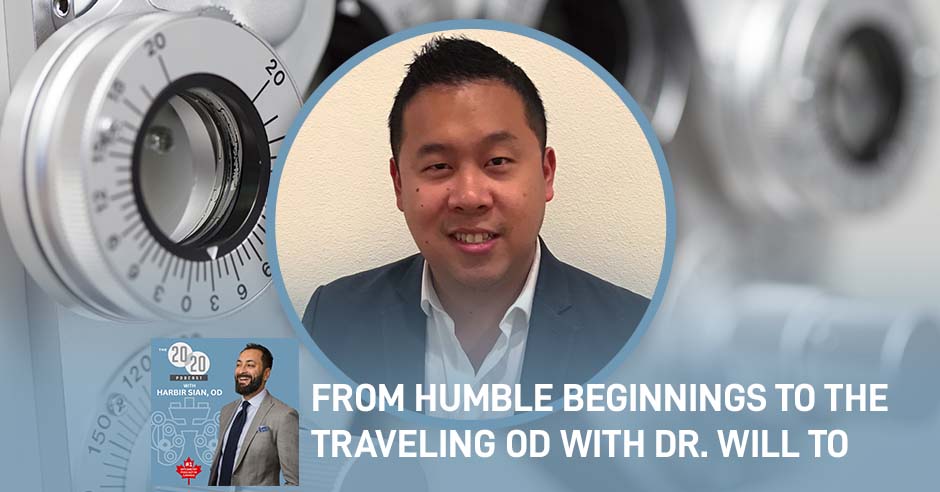
Almost all of us in the profession only ever get the chance to travel years down in our careers. As soon as we have our clinic, we are most likely going to get tied down to it and that wish for traveling gets put behind us. Our guest did things in reverse, earning him the nickname, “The Traveling OD.” Dr. Will To is the owner of seven practices across the USA, including locations in New York, California, and Alaska. He is also one of the most recognizable faces in optometry today. In this episode, Dr. To discusses how he became The Traveling OD, what the driving force is behind his practices, and what the underlying motivation is for him in life. Remember, after years of sacrifice and financial investment in optometry school, you earn not only the privilege of caring for others but also to embrace and enjoy life by taking the time for personal experiences. You can do both. It’s possible.
—
Watch the episode here
Listen to the podcast here
From Humble Beginnings To The Traveling OD – Dr. Will To
Thank you so much for taking the time to join me here. I always appreciate all the support. As always, I have one quick request right off the top. If you get some value out of this episode or if you’ve received value from previous episodes, please make sure you let a friend know. Send a link to them, text them, put it on LinkedIn and Instagram stories, and tag me and my amazing guest for this episode, Dr. Will To. Everybody knows who he is. He is one of the most recognizable faces in optometry. He is The Traveling OD, if you haven’t seen that already. He is also the owner of seven practices across the United States. That includes New York State, California, and Alaska. I can’t wait to dive into all the juicy information about Dr. Will To. Thanks for joining me, Will. I appreciate it.
I appreciate you having me. It’s always fun sharing and talking about optometry. I tell people all the time, “The worst thing you can ever do is give me a microphone and a stage to talk on because you’ll never get me to stop.”
We’re doing this for a little context for people who are reading. Will and I have been talking about having him on the show for a long time. Every time we see each other in person, I’m like, “Will, let’s set this up.” I’ll text him, “Let’s set it up.” It’s always like timing doesn’t work. All of a sudden, Will was like, “I got some time free.”
Normally, I would be at work but we had a huge snowfall. Everything is shut down here in Vancouver. This is what it takes to get you on a microphone. I’m happy to have you here. We can go on and on about all the amazing things you’re up to. The first thing I want to say is congratulations because you got married. I’m happy for you both. I’m hoping that married life has been suiting you both well so far. How has it been?
I work a lot. It’s no different. I live and work with my wife. I saw her, even before we got married, about 22 to 23 hours a day, every day, 7 days a week.
I don’t know how you do that. I think back to when we married, a lot of people say the same thing initially. It’s like, “It’s the same.” You’re best friends and you hang out all the time. You live together. Your routines are about the same but the fact that you guys live and work together is crazy. I’ve always wondered what it’s like to work with your spouse. Is it hard to maintain boundaries?
It depends on the relationship. It’s not for everyone, and don’t expect to have the same experience as I do. The biggest thing for me is we talk about optometry a lot. It’s a part of our lives. We don’t fight it. We don’t try to say, “Let’s block off a chunk of time where we don’t even talk about eyes, vision, or the business.” We let things flow organically, whether we talk about work or not work. The biggest reason why it works so well is because she gets it. This is from the beginning. All the ambitions and ideas.
I’m not saying it doesn’t work in non-optometry couples. If she had a rough day and she’s seeing a ton of patients who each had some difficult ones, at the end of the day, we chat about it. She doesn’t have to explain it. I get it because I’ve had those days. You don’t have to talk about the insurance, which was giving us a headache. The patient was sleeping in their contact lenses and they didn’t listen to me. You get it. You’re like, “I know how you feel.” I can empathize 100% with her best days and worst days. That’s why it works.
A benefit is you don’t have to give context and background information. You understand it. You have to say one word sometimes and you’re like, “I know.” I get that part. That makes a lot of sense. On the flip side, in our position, and I suppose most people’s relationships where they’re not working with their partner, it’s also nice that sometimes you don’t know everything about everything. You can tell a story.
My wife loves to tell a story and I’ve gotten into that. I love to be able to tell a story and give the background like, “This happened.” That’s fun. When you’re talking, it gives you something more to talk about. That’s great. I don’t think it’s for everybody but it’s nice to hear that you guys have that understanding about it. Let’s talk about the traveling part of The Traveling OD. Where did the name come from? You travel a lot. When did you start traveling so much in your career? How much, on average, are you traveling?
It all started with the fact that when I graduated, instead of jumping straight into patient care, I worked in the industry more as a speaker and consultant advising because I wanted to try something different. I knew I wanted to be a practice owner. The moment I became a practice owner, that would be the priority. I would not be able to travel and do as much point on.
For me, it’s everything until that point where I’m buying time until I get the loan approvals, negotiate the practice purchase, and all those little things that need to align. It was always meant to be a temporary thing. I was like, “I have the ability to see patients forever. Let me enjoy this time right after graduation and work for industry.” That required traveling a lot and doing presentations all around at different schools.
A lot of people know me from the fact that I talked a lot about practice management and inspirational talks when they were students or new grads and doing all these CEs. I’m showing people different ways of thinking about optometry, the non-traditional paths, where you can do what you want to do and still be successful because optometry has the ultimate flexibility as opposed to other careers. That’s what happens. It was always meant to be a temporary thing because you don’t know when these loans and leasing agreements go through.
I ended up taking two years, which was longer than I expected but I kept enjoying it. I was like, “This is what I’ll keep doing until we get to that point where I buy my practice.” In the beginning, it was like anybody else who works in any speaking industry. It’s 1 or 2 opportunities in the beginning. You’ll get a lot of noes at first. As you keep doing it and show people you have much more availability than others, it’s like, “Go ahead. We’ll put you on this panel. Why don’t you jump in on this podcast or all these different opportunities?”
It builds on itself and you keep getting invited to more things. It began to be a combination of that. Plus, I had a more flexible schedule because I wasn’t tied down by the clinic schedule so I could travel quite more. Around that time, after graduation, which was 2016, I started traveling and I realized, “I’m doing about 100,000 miles a year.” I don’t know the conversion for kilometers year after year.
It’s like converting American dollars to Canadian dollars. That’s 160,000 kilometers in a year. That’s a lot. That’s enough to get you very high status with an airline.
I used to do United a lot. I then did more Alaska since I had the Alaska practice. I get first-class upgrades about 50% of the time, which is a lot. You’re at the top status of almost all the different travel things. It works out. If you ask, especially people towards the middle or the end of their careers, everybody wishes they traveled more and had this flexibility. Here I am at the beginning of my career being able to enjoy all this.
It’s going to severely tone down as soon as I open my practices or buy my practices. I’m living my life and enjoying traveling, meeting people, and visiting practices. I always combine both personal travel. Everywhere I go to do a presentation, I’d also spend a few extra days enjoying the city, eating the local cuisine, and trying out some of the touristy and local stuff. You start meeting people both in and outside of optometry. You start understanding all the intricacies of each area but how we’re all the same.
There are no better or worse places in America or Canada. They are different. We’re all good people. We all care about our community and our relationships with people. It’s enriching to have that opportunity. I’m glad I did it. I often advise most students and new graduates because they always ask me, “What should I do?” I’m like, “Find a good opportunity, make some money, and be successful in your career but it’s not just about that. If you can find ways to do both, travel a lot.”
Think about this. During your time at optometry school, as doctors, we sacrifice for our patients. We spent a few years of our twenties and $250,000 or more to earn the privilege of taking care of other people. That’s what being a doctor is. It doesn’t mean you can’t enjoy your life or you don’t get to be selfish sometimes. Think about all those birthdays, the bachelor parties, the weddings, and all the things you had to say no to because you were in optometry school. You sacrificed quite a bit for years.
The first year or two after graduation, travel, go to all the places, go backpacking in Europe, and do all the things that you missed out on because you deserve to be able to experience those things. You know that once your career picks up, you’re going to have less time. If you start a family, you’ll have even less time. You can’t wait 20 to 30 years to do it at the end of your career. You can mix it in, especially after graduation, when you have that chunk of time. Enjoy your life and travel. Traveling is one of the best things you can do with your time and money, hands down.
There’s a saying about travel. It’s the one thing in life that makes you richer, that one thing you spend your life on money on that makes you richer. That’s traveling. It brings huge value to your life. I see that. It’s huge that you get to do that early in your career.
It’s a huge perspective. You can see the world. I grew up in the same area where I never ventured out of it. You can still live a full life but you live a one-dimensional life. The moment you start traveling, meeting more people, trying different things, and seeing things from other people’s points of view, you become multifaceted. It was a privilege that I had the first few years right after graduation. I wasn’t tied down to a clinic so I would do fill-ins and things like that but my primary job was doing presentations. It allowed me to do that. The Traveling OD was originally a hashtag back then when hashtags did stuff for you.
My good friend, Emilie Seitz, does a lot. She has her podcast and does a lot of things. She said, “Why don’t you make that your username? It makes sense because that’s you. Everyone sees that as who you are.” My old Instagram was just Dr. Will To. It wasn’t anything special. That was the original one. I turned it from the hashtag into my actual name and it picked up even more.
The only thing that was funny about this is you can capitalize letters in hashtags. When you use your username, it has to be all lowercase. The biggest problem is everyone started looking at this and they go, “It’s the Travelin God.” I’m like, “No.” It looks like that when you don’t capitalize the OD. When you capitalize OD, you see what I was trying to do there. A lot of the times, when I started meeting people, they were like, “You’re The Travelin God.” I’m like, “That was not intentional.”
You’re a traveling icon of sorts. That’s close. You’re more grounded in your practices. I’m going to spend some time talking about Alaska but let’s talk about California first, Bay Area, and Optical Illusions. What’s a day-to-day for yourself in your practice?
It’s very different and it has changed drastically. That’s where my role as the owner of it has become multidimensional in what’s needed. I still view myself as the CEO. My wife is the COO. She’ll handle more of the day-to-day. She’ll get down in the nitty-gritty of working directly with a lot of the team. Not that I don’t but I’m the big picture and the visionary. I try to control the big direction of the practice.
I tell people all the time, “I love patient care.” I miss it when I don’t do it often. My goal is to never get away from it. Even at the peak of my work on the practice building, I still put in one-half day of patient care in my schedule. I’d always see patients on Friday afternoons at the minimum. It would be my patients and not any new patients. I like to work with kids. I do like the pediatrics quite a bit. That’s why Friday afternoon makes the most sense for that.
That helps to keep me grounded because it’s important. You can make big decisions but what will separate you from some of the other corporations out there is that I will always know in my heart how this affects direct patient care versus if I get away from patient care for too long, I will make business decisions. Oftentimes, it can be good business decisions but they can be detrimental to patient care. I don’t tie that relationship anymore because I don’t do patient care. That’s a big thing.
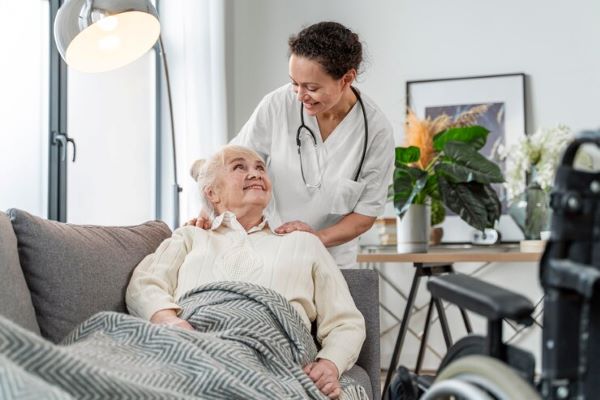
It’s important to stay in the trenches. Otherwise, if you lose that connection, you’re making business decisions, which is important to do. We spent all those years to get the privilege of taking care of people. If we start looking at dollar signs only, we’re not going to take care of them the way that we should. Tell me about some of the tech that’s behind you here. The machine that’s most visible is that brand new shiny envision platform from InMode. How long have you had that? How’s it been?
I had this for several months. It’s one of the things I’ve always wanted with my practices. I was born and raised in San Jose, California. I’ve lived in other places all over the country. It’s Silicon Valley. That’s what people most associate with. It’s the heart of Silicon Valley. I’ve always grown around technology quite a bit. The first time I built my computer was when I was ten years old. That’s lacking the old DOS type of stuff and Windows 95. I like tinkering with technology and building stuff.
When I was a young kid, Legos were always my thing. I’m always building stuff. I could have been a good engineer. Even though I went into healthcare, the rest of my family, with whom I have three other siblings, all went into tech. I’m the only one who has done healthcare. I still have that tech in my heart. I wanted to be able to marry that together. The three things my practices do that I feel well are high-level patient care, the most modern technology, and fashion, which is one of the things that makes optometry fun if you’re into it. You’re marrying fashion, healthcare, and technology. We are bridging all that gap as best we can.
I always want to make sure we have the best technology. I’ve had people who are executives of Stanford and UCLA. They were like, “We wish we had the technology you had.” I feel lucky enough. Some of these facilities have great people but they have so much red tape to get some of the equipment they deserve. I’m lucky that when I see a shiny new toy, I understand it, and I can see how it helps patients, I can buy it right then and there.
Dry eye is something special. I didn’t care about it as much at the very beginning of my career and most of my time as a student. The biggest influence who had on me in terms of thinking at a higher level of dry eye is Mila Bridget. Everybody knows Mila. In conversations with him as a new grad, it’s almost beautiful to listen to him talk about it. He has so much passion for it.
I could listen to him lecture multiple times. You always learn something new. You understand that, for him, it’s not just another service he provides for his patients. It’s something he truly embraces. He wants to take care of people and, hopefully, get to a position where this never becomes a problem for any of our patients in the future. He truly is that person and visionary. He is the one that got me into the dry eye space.
I’ve been guilty of this. One of the ways I used to treat dry eye in the beginning is I’m like, “Here are some artificial tears. Here are 3 or 4 different brands. Go and use it. If this one doesn’t work, use the other one. Go to the pharmacy and buy the one that works the best.” That was how dry eye was for a lot of people for the longest time. When you have finally these companies that are paying attention, you can treat the patient for these chronic conditions, and you as a doctor can perform them. They’re not outside of our scope in many cases. Some of it is still depending on the state.
The last thing is you can make money as a business. It’s not tied to insurance, which is always capping our reimbursements and making it more difficult with prior authorizations. It almost helps marry all the different pieces that can make you happy and successful. You can have fun with it. My patients who come in and when we do the radio frequency and the IPL, they’re so happy. They’re not just treating their disease but making them feel better as a human being. They’re happy, feel good, and look good. They don’t have as many symptoms. This is why it’s important.
There are a lot of devices out there. I have demoed a lot of them. It took me a while. This is not commercial for them. I don’t want it to be like that. What I like is that a company like InMode not only helps you supplement your dry eye practice but what it does is it almost opens up a whole new avenue and sector of business for you in the aesthetic side. I don’t want to be a one-dimensional doctor. I want to do everything and help patients in every way. It helps me grow as an individual and a doctor. It helps my practices grow.
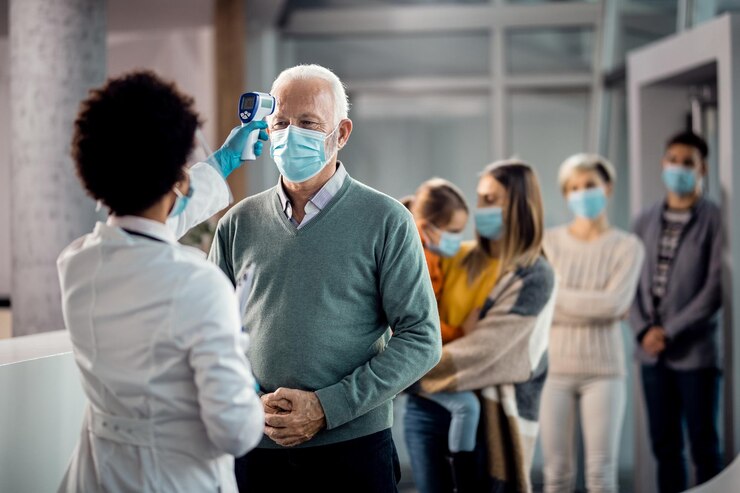
Having dry eye wellness and aesthetics has been such a huge practice builder in the last few years. We’re taking it as far as we can. All my staff are trained in using the devices, the ones that they can do within scope versus the ones that the doctors can do. It gets them excited because, at some point, when you’ve been doing glasses, contacts, and glaucoma for a while, you’ve done it all right. There are new advances and medications but you’ve done it all after a few years. This is something beautiful and new. Patients love it.
It’s been huge. Given InMode’s reputation in the aesthetic side of things, when you’ve got celebrities like Kim Kardashian and some of the other popular global celebrities who have talked about this technology, it helps you bring it up with patients as well. This thing was available in Canada earlier than it was in the States. We’ve had our machine for a few years. It took us about a year to get where things were going well with it. Patients were excited about having these treatments.
We took our second exam room and turned it into a treatment room. We dolled it up and made it look nicer, like a spa-like “chandelier,” nice scent in the room, and TV in the background music. When our technicians are doing treatments, the lights are dimmed. You’re like in a spa room. It’s very nice. Patients love that feeling, treatment, and level of service. It’s been cool. We wouldn’t have gotten to that level of service if we hadn’t invested in that technology. It’s helped us level up in our practice. Let’s talk about Alaska. I want to know how you even thought to go to Alaska first. What happened there?
It started as a joke. In Alaska, there’s no way. What happened was, several years ago, a friend casually mentioned to me, “Will, you’re the out-of-the-box guy. You like to do things that are different. You’re not afraid to take chances. I have a friend who’s retiring. His practice is in Juneau, Alaska. What do you think?” I laughed. I’m like, “I’m crazy but I’m not that crazy.”
He did bring it up again a few weeks later. He’s like, “No, I’m serious. I have a friend in Alaska who’s retired. It’s a good practice. If you’re interested, you can take a look at the numbers, visit, and see what you think.” I’m like, “You were serious. I thought you were messing with me. It doesn’t hurt to look like one. Let me chat with the guy and see what happens.” His practice has been around for many years. This is the second owner of the practice.
If you ever visited there, a lot of cruise ships go through the area for Alaskan cruises. It’s a community that’s a little bit isolated. It’s surrounded on three sides by mountains and the ocean on the fourth side. It’s very difficult but it’s the capital of Alaska. A lot of people fly in for business and do a lot of things. It became this conversation. The more I talked to this doctor, the more I looked into this practice. I’m like, “This is a good practice. It’s a good community that has a big need.”
In most of Alaska, the providers are retiring and there are not a lot of new doctors coming in. When you’re looking at this, you’re like, “How can we make this work?” A bleeding heart of mine was like, “I want to find a way to see if we can help this community.” The biggest thing was I eventually went to visit and met this team. It was good. I tell everybody, “More than the numbers or anything else, it was when I met the team that was there.”
They worked so well together. It was such a solid group of people who genuinely cared about patients and had a good work ethic. They care about the community because they’re all from there. They want to take care of the people in their community. To me, that was such a powerful thing. I’m not saying I don’t get that in the Bay Area in California or New York. It is a powerful thing. You hear about that in many smaller towns with smaller populations. You hear about many more of the suburban rural areas and the sense of community. It’s not that I didn’t have it before but it was profound.
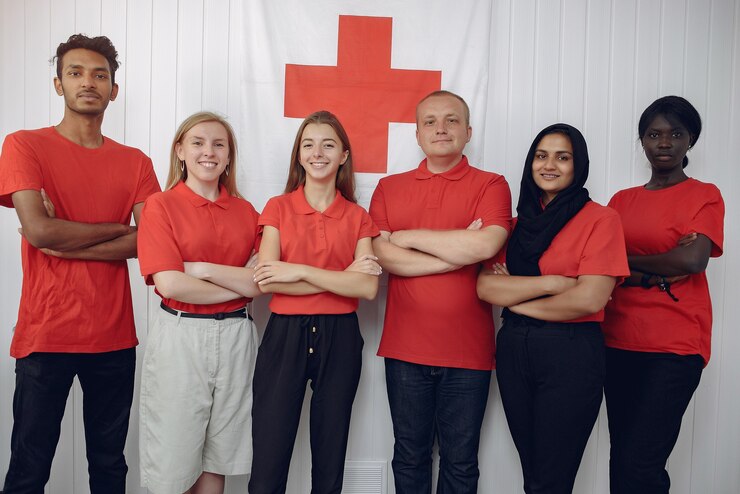
After that visit, it became like, “Let’s see if we can even make this happen.” We talked to a bank and took a look at all these things. Everything kept lining up. From the moment I visited to the moment I purchased the practice and on day one, it was six months. That’s how quickly that went through because everything lined up perfectly. The numbers were there. They are going to work out.
The other thing to add is that the doctor who owned the practice didn’t live in Alaska. He lives in Bend, Oregon. He would fly up about one week every month to see patients and would fly back. He wasn’t even there physically all the time or the majority of the time. That’s how good the team was that was there. He didn’t even have to be there to take care of patients and help people. For me, as The Traveling OD being able to go around, do all these different things, being able to take care of patients there and still spend time and take care of patients in California was worth a shot. It was something that worked very well. I still love going back and forth.
In the beginning, I was doing the same schedule he was on and it didn’t work. As I got busier and kept building more practices by acquiring and opening other practices across the country, it’s like, “I can’t be there as much. How do we make this work?” I don’t need to be there but it’d be better if you were there. We started looking into some of the telehealth that’s happening anymore. As of November 2023, we went 100% telehealth. We brought in the equipment at the beginning of 2023. We used the Topcon RDx and brought that in about February 2023. We were using it on and off. On November 1st, 2023, we were ready to launch. We were 100% telehealth there.
I was wondering why I haven’t seen any posts of you in Alaska. That explains why.
I still want to go up there. I don’t want to ever not go there. I feel like the primary care that can be taken care of by the new technology is amazing. I have had people challenge me to say, “There’s no way you can do a proper eye exam. There’s no way your eye exam is as good as mine.” I have them sit in on some of my exams. After the exam, they say, “Your telehealth exam is better than my regular exam.”
At this point, we’ve seen over 1,000 patients. We do post surveys for them asking all these questions on how they feel about it and what they like. The last question is, “Given the option, would you do this again?” Out of 1,000 patients, only 5 patients or so said, “I wouldn’t want to do this again.” Less than 10.5% said they would prefer not to. That’s how good the technology is.
If you can ballpark for me, what does it cost to outfit an office like that that’s going to be 100% telehealth?
At the bare minimum, you need digital proctors. A lot of different kinds are compatible. I like time equipment. RDx makes sense. There are a few other software out there to do the remote exams. The upfront cost is $25,000.
That’s less than I would’ve guessed. You need a camera in the exam lane. They’re seeing you. You’re seeing them. You have a technician doing all the testing, and it’s not good. I have no idea. My guess would’ve been over $100,000 but $25,000 is approachable and reasonable for most people to potentially do that. I’m happy to hear that it’s going well.
There are some of our colleagues out there reading who would be worried about that and how easily accessible telehealth is. Is that somehow going to be a detriment to our profession? You already acknowledged one thing, which is the level of quality. The eye exam is as good if not better than a standard in-person eye exam. There are going to be lots of people out there who would deny that. Is there a reason why we should be afraid of telehealth as potentially disrupting or deteriorating the profession?
Telehealth could be extremely detrimental to the profession if we, as doctors, aren’t the ones at the forefront of it. It’s like with everything else. When it’s doctors who are making the decisions, it will always be done well because we will make the right decisions for patient care. I mean no disrespect to anybody else but if we let a bunch of MBAs and executives in suits in a boardroom decide what the future of telehealth optometry is, it could be detrimental.
Telehealth is something that could be extremely detrimental to the profession if we, as doctors, aren’t the ones who are at the forefront of it.
I’m not the first one to have used this technology. There are hundreds of practices around the country. They’re very quiet about it because of the stigma that you talked about. They’re afraid to speak up because they get that our colleagues so much. They won’t even entertain a discussion because they get yelled at and shouted down for trying.
I’m not afraid of that. I’ve had people call me out. I have no problem answering questions and putting out there that this is the thing because we need to have discussions. As doctors, if we’re afraid to even talk about it, what’s going to happen is, over the next few years, before we know it, all the MBAs will be the ones who decide, “This is what telehealth optometry is.” It’s bad because it’s everywhere.
It’s the same thing that happened several years ago with eCommerce. It is going to happen with this. If we are afraid to talk about it, we stay in denial, and we think, “It’ll quietly go away,” it’s not going away. There are too many people out there licking their lips and salivating over the money that could be made in eyecare already. That’s why so much PE and all this other stuff is going on. It’s because people look at eyecare, and they have a lot of margins and money to be made. How can we cut off some of that fat, flip it over, and make some money? They’re going to look at telehealth as one of those things.
Cut out the doctor, there’s a big part of your cost right there, and we can make even more money. If we own up to it, stand in the front of this, and be like, “No, we’re going to own and run this,” we can control that and won’t be rolled over like we were several years ago with eCommerce. I’m with you on that one. What else in Alaska? Was there somewhat of a culture shock when you were going up there a bit more regularly? What’s one of the things that you were taken aback by?
I’ve never had a snow day before. When you grow up in California, you don’t live in snow. You go to snow. I’ll go to Tahoe skiing or snowboarding. Having to shovel my driveway for the first time is an interesting experience. I get why people hate snow. I always loved it because I always play in it. You always go to it to play versus when you live in it, you’re like, “This sucks. My back hurts.” I’m digging my car out of the snow. I empathize with the people who grew up with real winters.
I did make a few mistakes in the beginning. I could take that. My Optical Illusions fashion the high energy and pace optometry you get in New York and the Bay area and copy-paste. I messed up there because I didn’t understand the area and the people well enough to do something like that. I did pay the price a little bit here by alienating a few people. As I started going there more, they started appreciating that I was not just the outsider coming in and taking over one of the clinics. I’m one of them.
As I started going there more, I started going out visiting, going to different restaurants, talking to people at bars, and talking to people at different celebration events. I build actual relationships. I was like, “I am part of the community.” That was a big thing. That sense of community is so powerful there. I wouldn’t say I was an outsider. I wasn’t shunned for being the new guy in town. People talk to me as if I’m one of them. It took a few months for me to understand that I have to understand their way of life and optometry before I can apply it. We found the happy media in between, which we did, and it worked out very well.
Even back in the Bay Area, or for me here in Vancouver, wherever my office is, getting more entrenched in the community and understanding what the community is like will help people buy into what you’re doing in your business and practice. That’s a good advice. It takes more work and effort but it’s worth it on the other end.
The difference here is somebody came in once and it’s like, “I don’t have a ton of money. Can I pay my copay with fish?” I got some fish. I’ll pay you. They give me a fresh halibut or salmon. That’s worth more than your copay. The community was like, “Why don’t we barter?” I’m like, “I can do that. I’m okay with that.” That happens more than in these areas.
Fresh Alaskan-caught fish is worth something. I love fish and seafood in general but when I go to restaurants or if we are making fish at home, I’m looking to make sure it’s wild, not farmed, fresh, caught wild, or whatever in those restaurants. They’ll be like, “I don’t know. It’s from somewhere else.” I was like, “No, forget it. I’m not going to have it.” The fact that you get that real deal of good stuff is great. We’re lucky to live here. In Vancouver, there’s a lot of great seafood. That’s part of why I’ve become a bit of a snob.
Some of the best food I’ve ever had in the world is Vancouver. I don’t need to go anywhere else. I don’t need to explore the city. I’ll go and eat my way through Vancouver.
You better see me at some point. If I find out you’re in Vancouver and you didn’t see me, you’re in trouble. I want to try something new. I’ve been doing the show for several years. I’ve been very fortunate that people reading enjoy the conversations but it’s time to change things up a little bit. I wanna add a new little segment here. Before I tell you what it’s called, have you seen the Disney movie Moana?
I have not.
I have young kids. I’ve seen pretty much every Disney movie. Moana is one of their favorite movies. It’s a good movie. I encourage you to watch it at some point. There’s a character in there called Maui, who’s played by The Rock, Dwayne Johnson. He is great and such a charismatic person and actor. He does a good job with that. There’s a song in there that he sings called You’re Welcome.
He’s listing off all these things in this song about all these things that he’s done. He’s this demi-god. He’s responsible for a lot of the stuff that’s happened in the world. He’s singing you’re welcome for this, and you’re welcome for the sun and the stars in the sky, “Let me say you’re welcome for the wonderful world you know. It’s okay. You’re welcome.” It’s obnoxious but I’m going to call this segment You’re Welcome.
People who have come on the show are incredible, like yourself. They share such amazing insight. I want you to save that one amazing piece of insight, the most profound thing you can share with me in the audience. This is going to be like you are welcome to the audience for sharing this amazing advice. What is one amazing piece of advice, something that’s been powerful for you in your life and career that you could share with us?
The one that popped into my head right when you said that was a lot of great people in and out of optometry who have been my mentors and taught me many things. The one person I’ve always respected outside of optometry is Steve Jobs. I always felt like, especially in the early and middle of his career, the whole world was against him. He was trying to do so many things and change the world. I remember he gave a graduation speech at Stanford, Harvard, or MIT. One of the things he talked about was staying hungry.
You’re a student for life. That’s such a big, profound thing. Everyone thinks, “I’m done with optometry school. I’m a doctor now.” You have to stay hungry and keep wanting to learn, get better, and find better ways to take care of people, especially if you can find different ways of doing it. It’s never about reinventing the wheel or coming out with something profound that nobody has ever thought of before. Being able to make incremental changes and make the world a better place is huge for me. To be a student for life and always find new ways of being better and proving the world is huge.
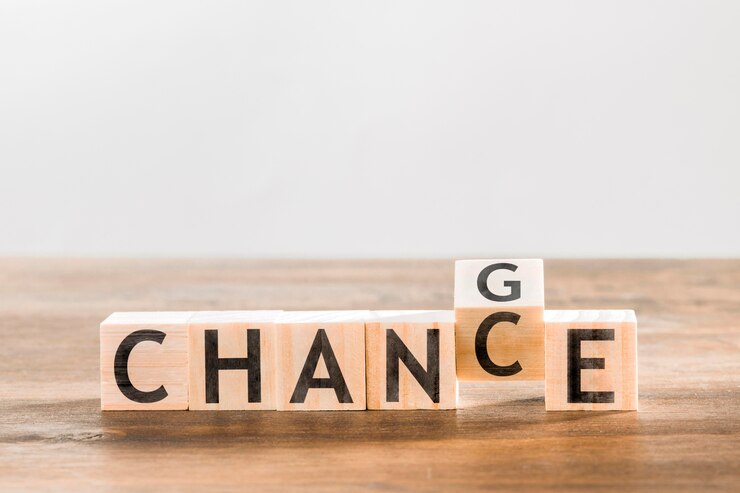
Everyone always thinks I’m a good business person. I always tell people all the time I’m not. I make terrible business decisions all the time. I’m always going to pick the patient first. I’m always going to make healthcare and patient care decisions first, even if I don’t make as much money. That’s what’s always going to separate me from some of the corporations that are out there. I could make a lot more money if I weren’t that way.
I grew up most of my life on welfare. My family was very poor. They were immigrants. There’s no family money. I worked hard. I’ve been working since I was a teenager, much my whole life. I built up and saved money. My parents never gave me money for school. I took student loans for an optometry school for undergraduate. I worked and paid my way through life. I’m always very humble about where I was from and where I came from. I don’t care about money. It’s a weird thing to say.
I don’t care about money. One of the reasons why I’m successful is because it’s not about money. When I talk about building my practices and making them successful, it’s about making the world a better place. That’s what we do. The advice I always give to a lot of students is not to feel like you have to follow this template of what everybody else wants you to do. Do your version of your life, figure out ways to help people in your way, and listen to everybody else.
Don’t ever feel like you have to follow a template that everybody else wants you to do. Do your own version of your life and figure out ways to help people in your way.
Have different mentors and relationships. Take a little bit from everybody but figure out how to do it your way. Always be humble about the fact that it is a privilege to be a doctor and provide care to people. I always stay attuned to that my whole life and with all the decisions I make. I’m not about becoming the person who has the fastest car or the biggest yacht. I genuinely want to do good in the world. I hope other people follow that about me more than anything else.
I’ll say thank you.
You’re welcome.
Before we wrap up, there are always two questions I ask. That’s going to stay the same as I have for years but before that, how can people get in touch with you or find you? Where do you want them to go?
Any social media, Facebook, Instagram, Snapchat, and TikTok. I don’t post a lot on Snapchat and TikTok as much as I used to but I’m still commenting on the platforms. Instagram is certainly the number one of them. It’s easy to find. When I’m traveling around at different conferences, say hi and let’s talk. Let’s get to know each other. We need to have that human connection, even if we do things online or digitally. I still love sharing a beer or a coffee with somebody. Let’s talk. It doesn’t have to be about anything in particular. It’s nice to have that.
I always love seeing you in person, even if it’s for a couple of minutes as we’re crossing paths in the hallway or wherever we are. These are the two questions I ask everybody at the end of every episode. Number one, if we were to hop in a time machine and go back to a point in your life that was a difficult time, you’re welcome to share the specific moment if you like but more importantly, what advice would you give to younger Will To at that time?
I can tell you what moment that was. I talk about the worst stage in my life to some people. I didn’t grow up wanting to be an optometrist. That was never the plan. I wanted to do healthcare and that’s about it because I wanted to help people but I didn’t know in what way. I went to undergraduate school and got a Human Biology degree. Afterward, I had no direction. I didn’t know what I wanted to do with it. Biology degree, by itself, doesn’t get you anywhere. I was doing random jobs.
At one point in my life, I had no direction. I was sitting on my couch playing video games all day and working whatever jobs I could to pay the bills and run the most random stuff. My entire checking account had $9. I was like, “What am I doing with my life?” It is a weird time. It was around 2009 and 2010. There was a recession in the US. It was very difficult to get a job.
I went to UC San Diego. During our graduation, the speaker said, “This is one of the hardest graduating classes since the Great Depression. I wish you good luck because you’re going to need it.” I was like, “What a way to end graduation.” It was tough. I’m glad they didn’t sugarcoat it. I’m glad it was like, “It’s going to be rough.”
In those first couple of years, I didn’t do anything because I was so pessimistic about the world. Nothing was going right. I was like, “I have a degree from UC. I can barely get a job that pays $12 an hour. What is this world?” I was angry at the world, myself, and all these things that we were promised to work hard and get a good education so we’re going to get a good job. I hated myself and my world. I had $9 in my bank account and an Xbox. It is all I owned. It was why I told people I love optometry.
When I found optometry, it saved me. It put me down this path where I started caring again about the world and people. I began to believe in people and myself. I am successful because I had that in my life. My advice to younger Will is not to change a thing. I needed to go to that rock bottom for me to know that this is rock bottom. Everything can only go up from here. I took that with me. It builds character to get you to this corner. I don’t think I would be the same person if that didn’t happen to me.
When you reach rock bottom, everything can only go up from there.
If you’re happy with where you are genuinely, I understand that you wouldn’t want to take that pain or difficult time away. As much as we’d like our lives to be easier, sometimes, when things are hard, it makes our lives better in the long-term. There’s a saying, “Hard times make strong people. The following goes strong people make easy times but easy times make weak people. Weak people make hard times.” It goes cyclical. We have to stay strong and go through those struggles.
The final question is about everything you’ve achieved to this point in your life, given everything you’ve shared already. Some of us who are reading this are going to guess the answer but I’m interested in hearing your thoughts. I’ve remembered. You’ve been on the show and heard these questions. It’s been a long time. It was during COVID. I don’t know if you remember this. It was several years back. The last question is, how much of everything you’ve achieved is due to luck, and how much is it due to hard work?
I never discount luck. I don’t rely on it. I’ve certainly been lucky enough to have certain opportunities presented to me but the difference is I’ve never been afraid to go for it, or at least for me, that people know. Several years ago, I was a much different person. That’s why I’m not scared to go for things because I’ve seen what happens when you let life pass you by. It’s always about taking that risk. This is a thing that I’ve talked to a lot of people about.
What’s the worst thing that could happen to me? Unless I do something where I hurt somebody badly. What’s the worst thing if I take a risk on a practice in Alaska or I’ll go for Hawaii? What’s the worst thing that can happen? I lost some time and money but let’s say it all goes downhill. I go bankrupt. I overspent all my money. My life savings is gone. I’ll be an associate. I’ll work at a corporate optometry office and make six figures. That’s good if you think about it. You could still have that ability.
As long as you don’t mess up so badly that you lose your license, you’ll still be a doctor and make money. Why not go for that risk? Why not buy that practice in Alaska? The worst thing is you lose some money and time but you’re still a doctor. You’re still helping people and making good money as an associate for the rest of your life if that’s what happens when you mess up. It’s not a bad idea to try. Your life will not change if you don’t do anything to change it.
Your life will not change if you don’t do anything to change it.
Your happiness matters a lot. When people try to talk about money, especially new graduates, they ask, “How do I make more money?” I was like, “It’s not about making more money. It’s about how to be happier.” Sometimes, that requires more money and that’s a part of it. It shouldn’t be all of it. Do things that make you happy. Keep doing what you’re doing. If you’re not happy, change it. Take a risk. Try something different. What’s the worst thing that would happen? You’re still a doctor and you still make good money. You waste a little bit of time and money but you’re going to be fine.
If you are looking to purchase a practice in Hawaii and looking for a partner, I’m happy to go in on that one with you. Anything to help you write off trips to Hawaii, I’m down for. You let me know.
I joked back and forth between, “Should I open the Optical Illusions of Honolulu or open up the University of Honolulu School of Optometry, and we can all be deans together?”
I like that second idea. Count me in. Thanks, Will. This was great. We could’ve gone double this easily. Are there any final words you want to share before we wrap up?
I appreciate it. I’ve been a big fan of yours for many years. I tried to catch your show whenever I could or at least little snippets of it when you post them. I’m honored to be a part of this because you have such good people. Anybody who’s reading, it doesn’t matter what I’m doing personally. Your job is not to be like me or any of the other people on this show. Your job is to learn from us. If you’re a new grad or a student, your job is to be better than us. The optometry profession only gets better if each generation is better than the one before. We should never be stagnant. We’re in big trouble if I’m the best optometrist to offer. I should not be at the peak of optometry.
For anybody reading, hopefully, you’ve learned something but I hope you also said, “Whatever Will said right there, he’s an idiot. I would never do that.” You have to learn what to do and what not to do but take that from all the different guests that you get from the show. Figure out yourself and keep going and building that up right there. It’d be amazing to see all the different things that people do in this profession. We’re lucky that we have such a great group of people.
Thank you for sharing that and for being on the show. I appreciate you sharing everything that you do. I forgot that you were on years ago. I would love to have you back again sooner than before to share a little more about what’s going on in your life. Thanks again, Will. Thank you to everybody who’s reading. I look forward to seeing you in the next episode. Take care.
Important Links
- Dr. Will To
- InMode
- Facebook – Dr. Will To
- Instagram – @TheTravelingOD
- TikTok – @TheTravelingOD
